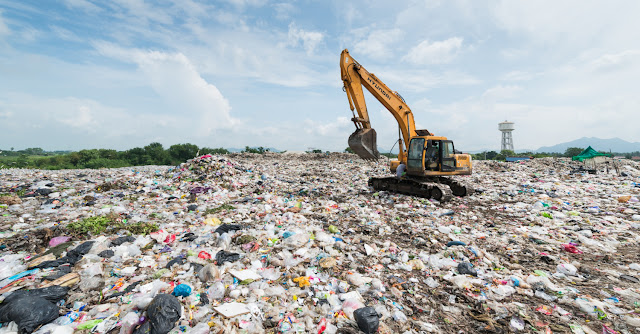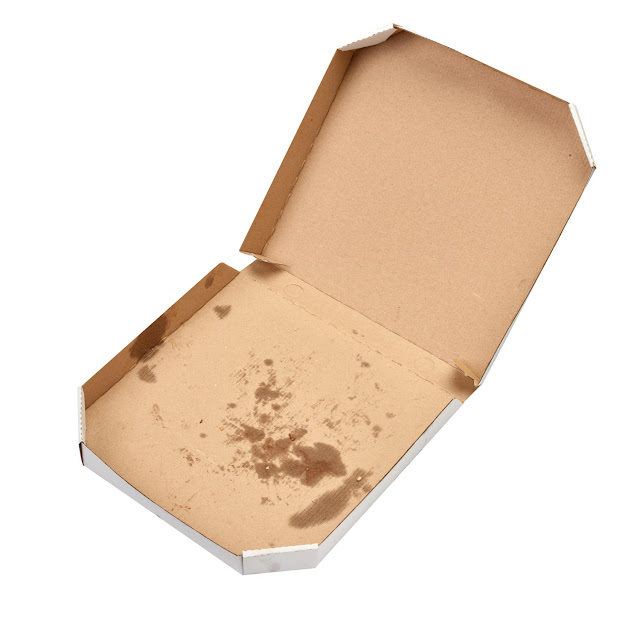Recycling is not a sexy topic that we want to know more about. No one on Instagram or Facebook will post their photos of recycling their wastes. I used to skip this part in my daily life. Tossing everything in a single trash can is so much easier. However, it just won't work for the Earth and your children's generation.
Things you put in the general trash bin will end up in landfills. Landfills are designed to keep wastes solid. Don’t think that wastes will compost in landfills. Landfills are not for degrading the wastes. Things we send to landfills are meant to stay there intact for hundreds of years so that they won't release methane, microplastic or toxins to the environment.
Landfills are finite. The linear economy doesn't work. Thanks to recycling technologies that have advanced in these 20 years, you can see more high-quality recycled products in markets. More investments go to recycling industries. Please have faith in recycling. Recycling does work if you follow the principles. Recycling industries will have better results and really make differences for us.
When we don't know if an item is truly recyclable or not, many of us still toss them into the curbside recycle bins wishing someone will take care of our wastes for us. It's called wishcycling.
Most curbside recycling services are run by the local government, so what types of wastes they really take depends on the local contractors and their facilities. The local facilities may not have the equipment to process some types of wastes so they don’t take those wastes. Usually they will clarify what they take and what they don't take on the bins. Take time to read through the instructions on recycling bins. When you have wastes you are not sure about, you need to check with your local government to figure out.
When you are not sure if a waste should go to this bin or not, don't toss it in because it will contaminate other recyclates in the bin and make the worker’s life harder in the facility just to sort it out, or risk their safety just to remove it from the facility.
Seven things most curbside recycle services don't take. If you wishcycle them in the recycle bin, it may cause the recycle facility to shut down or even kill or hurt the workers.
1. Plastic Bag
In recycling facilities, everything lays on a conveyor passing through workers. Workers will investigate and sort out unwanted things.
Most curbside recycling services don't take plastic bags because they are so light and can get blown away into the machine and tangle the conveyer, causing it to shut down. Sometimes workers need to go far into the machine to remove the tangler. A plastic bag can put their safety at risk.
What should you do when you have plastic bags to get rid of? Plastic bags can’t be composted but they can be broken down by light, enzymes or special chemicals. Instead of sending them directly to landfills or innocently ending up in the ocean. See if you can find any specialist recycling services providers like terracycle, Ridwell, Recycle Smart, Rabbit Recycling. They may have drop points near you or you can ship the wastes to them.
We started to see some grocery stores or supermarkets have bins for collecting plastic bags. Plastic bags are NOT recyclable but by sending them to the right places, you are still doing good to the Earth.
2. Clothes
Clothes are not recyclable. Clothes are also tanglers for the conveyors in recycling facilities. The best way to get rid of your unwanted clothes is to give them away to someone or to charities. If no one wants them, just put them in your trash can. Not surprisingly, they will end up in landfills and take hundreds of years to decay.
Clothes are usually expensive when you buy them from shelf, it might be heart-breaking when you have to toss them in the trash can. You can avoid these hassles by buying less clothes or wearing them as long as you can.
3. Polystyrene(Styrofoam)
This white, light-weight and foam-like packing material is less common nowadays but you can still see it as single-use coffee cups or packing materials. They are not recyclable. Most curbside recycling services don’t take them either. If you still toss them into the recycle bin, they are likely to break down into small balls, stick to other recyclates and contaminate the whole bin. Workers will either need to remove these balls from other wastes, lowering down the efficiency of the recycling facility, or they will give up the whole batch of recyclables and send them directly to landfills.
According to the California coastal commision Floating polystyrene is one of the most serious troubles in the sea. They cause sea mammals and birds to choke or even kill them. If you have polystyrene to get rid of, leave them in your trash can. Again they will go to the landfill and stay there for hundreds of years.
4. Caps of bottles
Both plastic and metal caps of bottles are too small. They can get stuck into the conveyor and cause the facility to shut down. Recycle the bottle and leave the caps in the trash can.
5. Greasy Pizza box
Pizza box is made with cardboard. Cardboard is recyclable. However, if there are food scraps or grease on the box, you can't put it in curbside recycle bins. It will get moldy and become hazardous to people who handle it in recycling facilities. A better way is to compost it. If you run a home compost pile, soak the greasy pizza box in water and tear them into small pieces and compost them.
6. Food scraps or packaging with food residue
Food scraps belongs to compost pile. Unfortunately, unless your community has a voluntary service for collecting food wastes and composting them, most curbside recycling services don't take food wastes. Before you send any food packaging to the recycle bin, for example, peanut butter jars, soda cans, wine bottles, milk bottles or coffee pods, rinse them quickly with water to minimize contamination and also protect the health of workers in recycling facilities.
7. Compostable plastic
Counterintuitively, a plastic marked as compostable or biodegradable isn't recyclable. They are not even clear under what conditions they can be composted. Some may not be degraded in a home compost. If you have home compost, try breaking compostable plastic into small pieces and then send them to your compost pile.












0 Comments